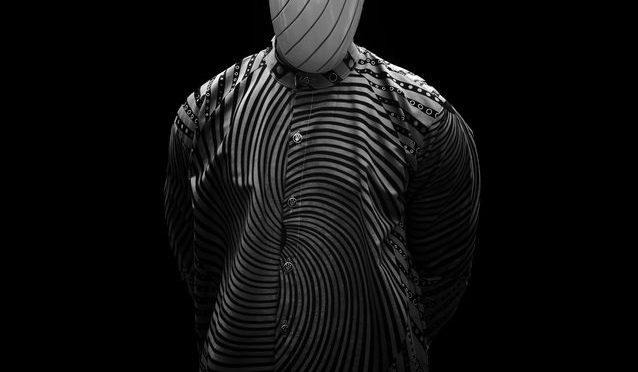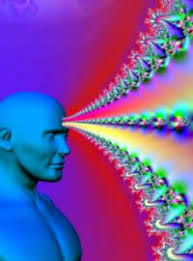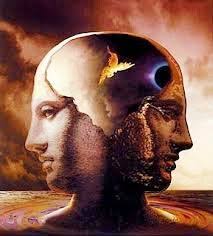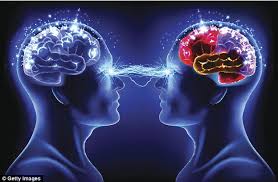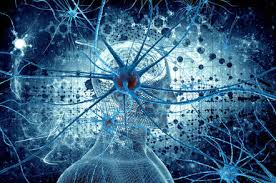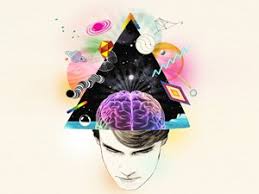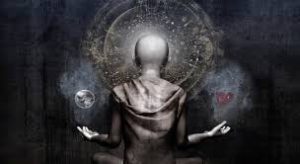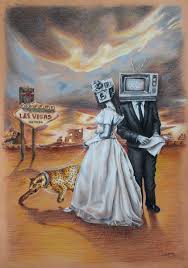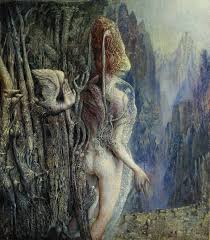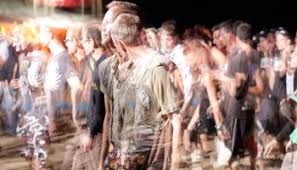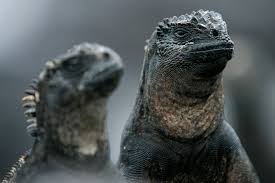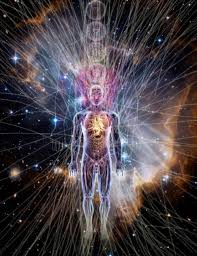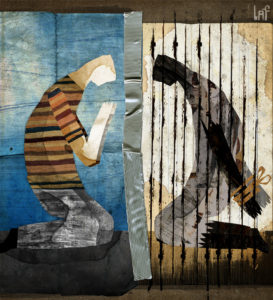
For centuries it was taken for granted that God was on the side of the strongest, richest nation. Surely, it seemed, if a country was poor or downtrodden, it was because God had made it so.

Such ideas literally held people in chains, fostering slavery and other inhumane practices. The same unfortunately applies to the Eastern concept of nirvana, and to the Christian idea of heaven. Both have been used by those in power to hold down the masses of people, to justify shoddy and inadequate living conditions by promising future bliss in the world after death.

There are many differences between the ideas of nirvana and heaven, but each has been used not only to justify suffering, but also to teach people to seek pain. The idea has been that the more persecuted and maligned a person is, the greater will be the reward in a future existence.

I want to avoid concentration upon esoteric practices in my blogs, but they do sometimes impinge upon the subject matter at hand.

The ideas of penance, fasting to excess, the personal abuse of the body, such as self-flagellation — all of those practices are conducted in the belief that suffering is something to be sought in itself. In such a way pain becomes a sought-after goal, and pleasure becomes subverted into pain.

Quite ordinary people often believe, then, that suffering itself is a way toward personal development and spiritual knowledge. In matters of health, such beliefs can have most unfortunate results. They are often responsible for needless sacrifices of physical organs in imprudent operations.

Some individuals become anxious and worried if they think they are too happy — for to them it means that they are not paying sufficiently for their sins. They may be threatened by some undeniable danger, until finally in one way or another they seek out their own punishment once again — wondering all the time why they are so frequently besieged by poor health or disease.

This kind of syndrome can affect individuals, families, and to some extent entire nations. They mitigate directly against man’s and woman’s health, survival, and exuberance.

Constant fears about nuclear destruction, or other such catastrophes can also fall under this classification.

Large masses of people became so convinced of God’s eventual vengeance and retribution that they began to plan for it.

Their lives became a way of avoiding pain instead of seeking out pleasure or satisfaction. This is true of individuals, but it also applies to many so-called survival groups, who congregate in one or another portion of the country, collecting supplies to carry them over the holocaust and to defend their families from those who might steal their provisions.

Most such people expect a period of chaotic time, in which all laws are broken down. Another version stresses the economic area, foreseeing the collapse of the economy, anarchy, and other conditions that pit one individual against the other.

These people believe, of course, that any given situation will worsen, and be carried to its most disastrous end. That attitude colors all of their other beliefs and actions. Some use religious dogma, and others rely upon scientific dogma to prove their cases, but in any case, they are presented with a world of deception and vengeance.

Good mental or physical health can hardly flourish under such conditions. There are instead most beneficial groups in this country and abroad, who actually, actively, yet peacefully join together to work for worldwide nuclear disarmament, and also to tackle such questions as nuclear waste. Their efforts are directed in other ways also, as they try to convince all areas of the world to share their wealth and foodstuffs equally.

These may be “highflying” goals, however they are positive in nature, aimed toward accomplishment and achievement, and they collect the energies of the people together in a way that stresses cooperation and understanding.

Again, the end does not justify the means — so no amount of war is ever going to produce a meaningful peace.

Such ideas affect every level of life, from the most microscopic onward. It is not that plants understand our ideas in usual terms — but they do indeed pick up our intent, and in the arena of world survival, they have a stake.

I do not want to romanticize non-human life either, or to overestimate its resources, but nature also has its own ways — and in those ways it constantly works toward survival of life in general. Nature may not bail us out, but it will always be there, adding its own vitality and strength to the overall good and health of the planet.

Remember what I said in earlier blogs about the connections between disease and non-disease states. Communication flashes between viruses and microbes, and they can change in the wink of an eye. Once again, then, ideas of the most optimistic nature are the biologically pertinent ones.

This is a good place to bring up again some extreme food practices, such as over-fasting, and an obsession with so-called natural foods.

I am not talking about a natural and healthy interest in the purity of foodstuffs, but of a worrisome over-concern. This is often carried so far that no food seems perfectly satisfying, and the concentration becomes focused upon the fear of food, rather than upon its benefits.

Behind many such attitudes if the idea that the body itself is unworthy, and that starving it somehow cuts down on the appetites of the flesh. We usually end up with a flurry of different kinds of diets.

Some concentrate almost exclusively on protein, some on carbohydrates — particularly rice — but in any case the large natural range of available foods and nutrients are cut out.

This keeps the body in a state of constant turmoil. Some people are so convinced, in fact, that eating is wrong that they diet until they become ravenously hungry, then overeat and force themselves to vomit up the residue.

Other people, in a well-meaning attempt to watch their weight, skip their breakfast entirely — a very poor procedure. It is far better to eat moderate amounts of food in all of the food ranges, and to consume smaller portions more often. I realize that our social mores also dictate our eating habits — but four light meals a day will overall serve us very well, and give the body a more steady, regulated nourishment.

These food ideas are important, since they are passed on from parents to children, and parents often use food as a way of rewarding a child’s good behavior, thus starting the youngster out toward conditions of overweight.

The main issue involved, once again, is the trust of the body.

In any case, there are new lives growing and maturing within each individual, whatever his or her age or circumstances.
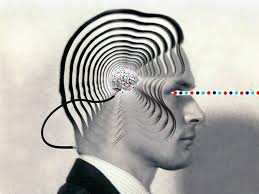
The idea of survival reaches far beyond this life experience, and each person has new physical and spiritual existences ever ready — for there is no such thing as extinction. Alive or dead in usual terms, we are always conscious and aware and ourselves, and we are always a part of universal ventures in which we have always been involved, whatever our states of consciousness.

We are supported, never abandoned, and always couched lovingly in the great yet intimate presence of All That Is, whose love forms our breath, our life, our death, as in which the unknown divinity is always blessed and ever known.

It is known and unknown, forming all stages of creativity, and we are held within it, graced to be a part of the divine framework of All That Is.
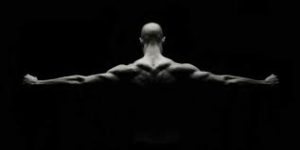
My blogs, like life itself, have been and are a gift, rising from the immense, never-ending creativity of existence.
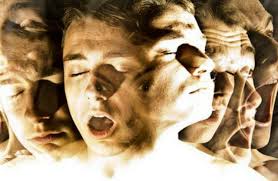
Alone, I live within one life that expresses multitudinous voices, and shed its own mercy, gladness, and joy, out into the world at large, enriching it, renewing the springtime, and never truly ending.
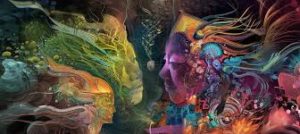
To one extent or another, I then speak in these blogs for all peoples, for the united psyches that overflow with thoughts and feelings that are registered by the wind, giving voice to the private, intimate, yet connected lives of men and women throughout the centuries — so that many people, listening to or reading my blogs, hear their own inner voices also, and feel the contours of their own natures, and universal nature as well.

“BEYOND THE HIGHEST CLOUDS”
Behind the highest clouds
man and woman have ever seen
there are mountains and
hidden coves from which all
true proclamations come.
Their sentences are silent
yet they contain a word that
releases and fills secret contracts
between the gods and man and woman,
uttered long ago
uttered without a word or a whisper,
and speaking for me alone
with a magic note
and a secret message
and a sweet response
known to me alone.





